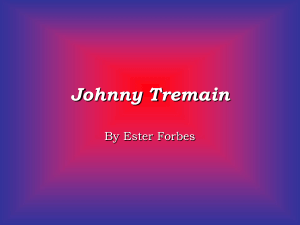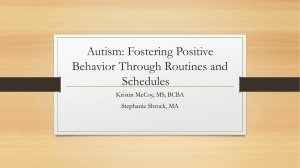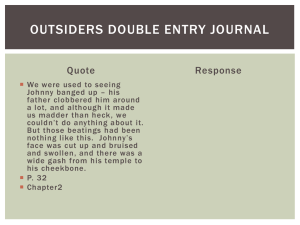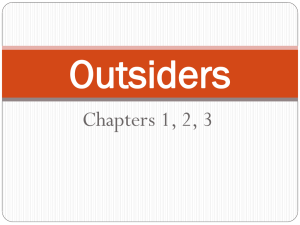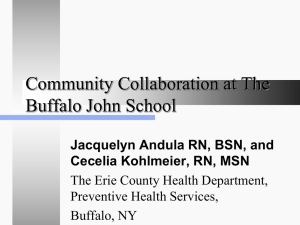DOC - Center for Children`s Advocacy
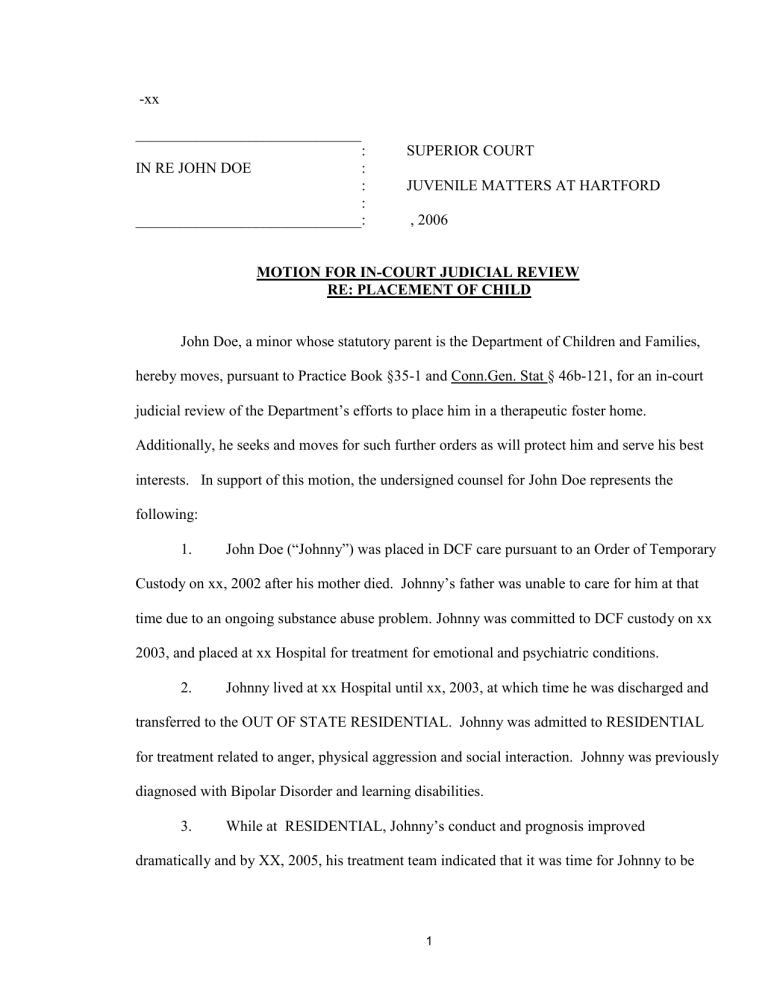
-xx
______________________________
:
IN RE JOHN DOE :
:
:
______________________________:
SUPERIOR COURT
, 2006
JUVENILE MATTERS AT HARTFORD
MOTION FOR IN-COURT JUDICIAL REVIEW
RE: PLACEMENT OF CHILD
John Doe, a minor whose statutory parent is the Department of Children and Families, hereby moves, pursuant to Practice Book §35-1 and Conn.Gen. Stat § 46b-121, for an in-court judicial review of the Department’s efforts to place him in a therapeutic foster home.
Additionally, he seeks and moves for such further orders as will protect him and serve his best interests. In support of this motion, the undersigned counsel for John Doe represents the following:
1. John Doe (“Johnny”) was placed in DCF care pursuant to an Order of Temporary
Custody on xx, 2002 after his mother died. Johnny’s father was unable to care for him at that time due to an ongoing substance abuse problem. Johnny was committed to DCF custody on xx
2003, and placed at xx Hospital for treatment for emotional and psychiatric conditions.
2. Johnny lived at xx Hospital until xx, 2003, at which time he was discharged and transferred to the OUT OF STATE RESIDENTIAL. Johnny was admitted to RESIDENTIAL for treatment related to anger, physical aggression and social interaction. Johnny was previously diagnosed with Bipolar Disorder and learning disabilities.
3. While at RESIDENTIAL, Johnny’s conduct and prognosis improved dramatically and by XX, 2005, his treatment team indicated that it was time for Johnny to be
1
discharged.
4. By this time, Johnny was eager to be transferred to a less restrictive setting and told his DCF social worker that he wanted to learn about the Independent Living Program. He said he wanted to attend college someday and become a teacher or a DCF social worker.
5. Although Johnny’s clinicians and his DCF treatment team recommended that he be discharged to a less restrictive facility, Johnny remained unnecessarily institutionalized in an out-of-state facility for months. Indeed, Johnny’s xx, 2006 DCF Treatment Plan admitted that
“Progress by DCF in locating an appropriate group home for [Johnny] is limited due to [the fact that] there are no openings at facilities.” (See DCF Treatment Plan, dated xx, 2006, pg. 2, attached hereto as Exhibit A.)
6. After multiple treatment team meetings, an administrative case review, several letters and phone calls from Johnny’s counsel’s office to DCF, and a court order for placement,
Johnny was finally discharged from RESIDENTIAL to a therapeutic group home in xx of 2006, more than one year after he was first recommended for community-based placement.
7. From day one of Johnny’s placement at the group home, however, his treatment team, including the director of the group home, agreed that Johnny would need to quickly move on. DETAILS. Accordingly, his treatment team felt that he would soon need to move on to a less restrictive and more appropriate environment.
8. Unfortunately, Johnny’s profile for therapeutic foster care was not circulated until
XX 2006, several months after he began living at the group home. Since that time DCF has worked internally to locate a foster home for Johnny, holding meetings at the XX area-office to brainstorm regarding placement resources. The undersigned counsel attended several of these meetings. Despite these meetings, DCF has yet to identify a home or even a foster care agency
2
that can commit to finding a home for Johnny.
9. DCF is obligated to provide an appropriate home for Johnny. The state, by virtue of its having taken Johnny into its custody and control, must provide Johnny with treatment in accordance with the reasonable judgment of treating professionals. DCF’s explanation for failing to place Johnny in a foster home is that placement opportunities are “limited.” However, the alleged dearth of appropriate placements does not undermine Johnny’s right to a placement in accordance with professional recommendations.
10.
Finally, DCF’s inability to find a foster home for Johnny violates Johnny’s rights under Connecticut General Statute § 17a-16, provides that “[e]ach child … shall receive humane and dignified treatment at all times … consistent with his treatment plan
.” (emphasis added.)
Johnny’s treatment team formally recommended him for foster home placement at the beginning of July, almost five months ago.
11. Johnny, through the undersigned counsel, sent a letter to DCF, dated XX, 2006, requesting detailed information related to the agency’s efforts to find a home for Johnny. To date, counsel has not received a response either in person or in writing. (See letter dated XX
2006, attached hereto as Exhibit B.)
12. Johnny is a bright and articulate young man. He is close to his RELATIVES all of whom live in the Hartford area. He has diverse interests and enjoys ACTIVITIES. For the first time in years, Johnny has an opportunity to live what he considers to be a “normal life.” He wants to live in a family and go to his neighborhood school and enjoy the evolving independence that comes with growing up in a non-clinical setting. He deserves that chance.
WHEREFORE , Johnny Doe and his counsel respectfully request an in-court judicial review of the State’s efforts to provide him with an appropriate foster home, and move for such
3
further orders as will promote his best interest and the goals outlined in his treatment plan.
Respectfully Submitted,
BY: ______________________________
Center for Children’s Advocacy, Inc.
University of Connecticut School of Law
65 Elizabeth Street
Hartford, CT 06105
Tel. 860-570-5327
Fax. 860-570-5256
Juris # 421708
Attorney for John Doe
ORDER
The foregoing motion having been duly heard, it is ORDERED:
GRANTED / DENIED
By the Court
_______________________________________
Superior Court Judge
4
CERTIFICATE OF SERVICE
This is to certify that a copy of the foregoing has been mailed, postage prepaid to
Assistant Attorney General’s Office,
5

